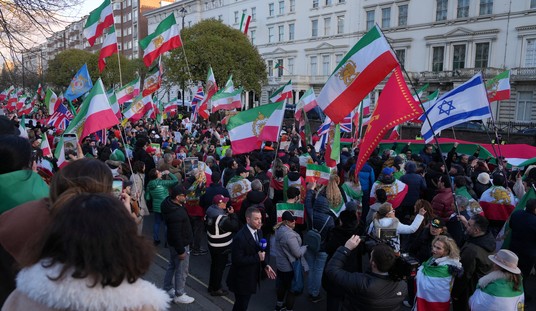On Sept. 3, British Prime Minister Neville Chamberlain, having received no reply to his ultimatum demanding a German withdrawal, declared that a state of war now existed between Great Britain and Germany.
The empire followed the mother country in. The second world war was on. It would last six years, carry off scores of millions and end with Germany in ruins, half of Europe under Josef Stalin's rule and the British Empire on the way to collapse.
Though it may prove to be the mortal wound that brings about the death of the West, most today accept World War II as inevitable, indeed as "the good war."
For it is said and believed that Adolf Hitler was not only the incarnation of evil but also out to conquer, first Poland and then Europe and then the world.
To stop such a monster, one must risk everything.
Which makes these two sentences in the final chapter of British historian Richard Overy's new book, "1939: Countdown to War," riveting:
"Few historians now accept that Hitler had any plan or blueprint for world conquest. ... (R)ecent research has suggested that there were almost no plans for what to do with a conquered Poland and that the vision of a new German empire ... had to be improvised almost from scratch."
But if Hitler had no "plan or blueprint for world conquest," this raises perhaps the great question of the 20th century.
What was Britain's stake in a Polish-German territorial quarrel to justify a war from which the British nation and empire might never recover?
Recommended
How the war came about is the subject of Overy's book.
By August 1939, Hitler had come to believe that Polish intransigence over the city of Danzig meant Germany would have to resolve the issue by force. But he desperately did not want a war with Britain like the one in which he had fought from 1914-18.
To prevent a German-Polish clash from bringing on a European war, however, Hitler had to sever the British-Polish alliance formed the previous spring.
To split that alliance, Hitler negotiated his own pact with Stalin, a coup that meant any British declaration of war to save Poland would be an utterly futile gesture. But when the Hitler-Stalin pact was announced, spelling Poland's doom, Britain publicly reaffirmed her commitment to Poland.
Hitler instantly called off an invasion set for Aug. 26.
In the last analysis, says Overy, British "honour," Chamberlain's honoring of his war guarantee to the Poles, caused Britain to go to war.
When and why was this commitment given?
On March 31, 1939, Chamberlain, humiliated by the collapse of his Munich agreement and Hitler's occupation of Prague, handed, unsolicited, a war guarantee to a Poland then led by a junta of colonels.
To understand the rashness, the sheer irrationality of this decision, one must understand the issue involved and Britain's situation in 1939.
First, the issue: The Polish-German quarrel was over a city, Danzig, most British leaders believed had been unjustly taken from Germany at the end of World War I and ought to be returned.
The German claim to Danzig was regarded as among the most just claims Germany had from what most agreed by then had been an unjust and vindictive Treaty of Versailles.
What did the people of Danzig themselves want? Writes Overy:
"In May 1933, shortly after Adolf Hitler came to power in Germany, Danzig's National Socialist Party won 38 out of the city's 72 assembly seats and formed the city government. ... By 1936 there was a virtual one-party system. ... The strongly nationalist German population agitated in 1939 to come ... back home to Germany."
In short, the Germans wanted their city back, and the Danzigers wanted to go home to Germany. And most British had no objection.
Yet Britain backed up Poland's refusal even to negotiate, and when that led to war, Britain declared war on Poland's behalf.
Why did Britain do it?
After all, the war guarantee was given in response to the destruction of Czechoslovakia, but the Polish colonels had themselves participated in that destruction and seized a slice of Czechoslovakia.
Second, despite the guarantee, Britain had no plans to come to Poland's aid. Third, Britain lacked the means to stop Germany. When Hitler bombed Warsaw, British bombers dropped leaflets on Germany.
If Britain had no ability to save Poland and no plans to save Poland, why encourage the Poles to fight by offering what the British knew was a worthless war guarantee? Why declare a European and world war for a country Britain could not save and a cause, Danzig, in which Britain did not believe, in an Eastern Europe where Britain had no vital interest?
Said British Foreign Secretary Lord Halifax, "(We must) throw all we can into the scales on the side of law as opposed to lawlessness in Europe."
And throw it all in they did. And what became of Poland?
At Tehran and Yalta, another prime minister, Winston Churchill, ceded Poland to Stalin's empire, in whose captivity she remained for a half-century.

























Join the conversation as a VIP Member